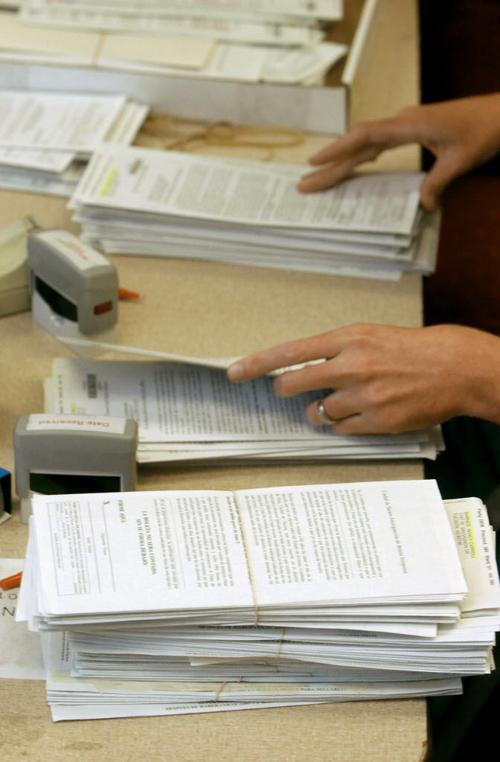PHOENIX — Saying it doesn’t place an undue burden on voters, a federal judge Friday refused to block the state from enforcing its controversial law against “ballot harvesting” this coming election.
U.S. District Court Judge Douglas Rayes acknowledged that limiting who a voter can give his or her completed early ballot to for delivery might cause an inconvenience. But he said that hardly infringes on the person’s rights, given all the other options for voting, both in person and by mail.
Rayes also did not dispute arguments by challengers that there are no confirmed cases of fraud from ballot harvesting.
The judge said, however, the state does not have to provide such proof. He said the mere fact that absentee voting presents a greater opportunity for fraud is sufficient justification for the restriction.
And Rayes said the state’s interests in ensuring fair elections give lawmakers fairly broad latitude in enacting what he said are minimal restrictions like these.
Friday’s order does not end the legal fight. Instead, Rayes simply refused to enjoin election officials from enforcing the law while the case makes its way through the legal system, a process that could take months or longer.
But the judge also said it is unlikely the challengers will succeed in their claims even after a full trial.
There is another option: Challengers, led by the Arizona Democratic Party, can ask the 9th U.S. Circuit Court of Appeals for an expedited review of Rayes’ ruling ahead of the election. But time is working against them, with early ballots set to go out Oct. 12.
Friday’s ruling is a victory for Republican Secretary of State Michele Reagan, who was the prime force behind the law that makes it a felony to collect someone else’s voted or unvoted ballot, punishable by a year in state prison. Reagan acknowledged a partisan reason behind the measure.
Speaking earlier this year at the annual Conservative Political Action Conference before the measure even had been approved, Reagan said the “outrageous loophole” in Arizona law makes it easy to “cheat.” And she said it is “the radical Left who uses ballot harvesting.”
State GOP Chairman Robert Graham, in a statement issued Friday, echoed the theme.
“Ballot harvesting is a practice used by the Democrats and their leftist allies in Arizona that was rife with opportunity for manipulation and outright fraud,” he said. And Graham, like Republican lawmakers who pushed the measure, said the absence of any proof of fraud is irrelevant.
The ruling drew the opposite reaction from the other side of the aisle.
“Unlike the state Republican leadership, the Arizona Democratic Party does not believe that it should be a crime for one neighbor to help another neighbor vote,” said Sheila Healy, that party’s executive director.
The measure was clearly partisan, with only one Republican in the entire Legislature voting against it. That did not go unnoticed by Sen. Steve Farley, D-Tucson.
“The problem we’re solving is that one party is better at collecting ballots than the other one,” he said during Senate debate. “The other tried and they failed, and, therefore, it’s time to change the rules.”
Among the claims of challengers is that the law significantly increases the burdens of voting.
Rayes said that’s not the case.
“It does not eliminate or restrict any method of voting,” he wrote. “It merely limits who may possess, and therefore return, a voter’s early ballot.”
The judge said those who requested and received early ballots can return them themselves, either in person or by mail. And he noted that even under the new law, voters still can give their ballots to family members, those living in the same household and caregivers. Rayes also noted other laws designed to ease voting, including requirements to personally deliver ballots for those too ill or disabled to get to polling places, and requirements that employers give workers time off to vote.
“Evidence indicates that many voters who entrust their ballots to collectors do so not out of necessity, but for convenience or because they prefer a trusted volunteer to deliver their ballots,” the judge wrote. And he said for many voters, the impact of the new law “results from a matter of preference or choice rather than a state-created obstacle, and therefore is not a substantial burden.”
Rayes also brushed aside claims that the law will impose severe burdens on rural voters who lack reliable transportation or access to secure outgoing mail.
“It is telling that they have not produced a single declaration from a voter who fits this profile,” he wrote.





